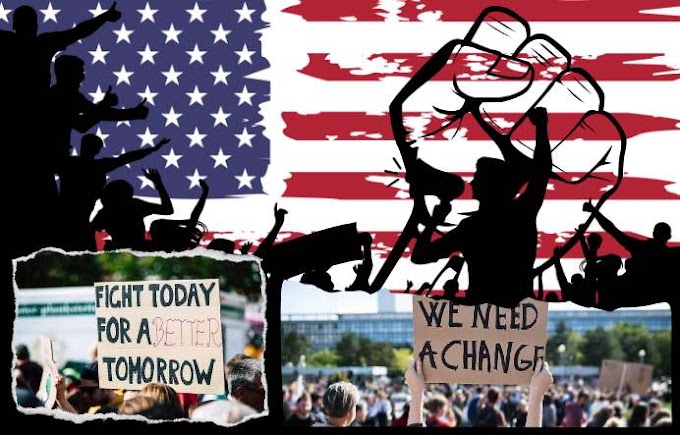Introduction
Snoop Dogg, born Calvin Cordozar Broadus Jr., is an American rapper, singer, songwriter, record producer, and actor who has left an indelible mark on the music industry and popular culture. With his smooth, laid-back flow, catchy hooks, and West Coast hip-hop style, Snoop Dogg has become one of the most recognizable and influential figures in the world of music. Over the course of his career, he has sold over 35 million albums worldwide and won numerous awards. Beyond music, Snoop Dogg has also ventured into acting, television, and entrepreneurship, further solidifying his status as a pop culture icon.
Early Life and Musical Beginnings
Born Calvin Broadus Jr. on October 20, 1971, in Long Beach, California, Snoop Dogg grew up in a rough neighborhood and was exposed to gang culture and violence at a young age. Despite these challenges, he found solace and inspiration in music, particularly hip-hop, and began rapping in high school. By the early 1990s, he had adopted the stage name Snoop Doggy Dogg and was making a name for himself in the local hip-hop scene.
Breakthrough with Dr. Dre and Death Row Records
In 1992, Snoop Dogg's life took a dramatic turn when he was discovered by legendary producer Dr. Dre. Dre was immediately impressed by Snoop Dogg's talent and unique style, and he signed him to his record label, Death Row Records. Together, they created some of the most iconic hip-hop tracks of the 1990s, including "Deep Cover" and "Nuthin' but a 'G' Thang."
Death Row Records Era and Solo Success
Snoop Dogg's debut album, "Doggystyle," released in 1993, was a commercial and critical success, selling over 8 million copies and establishing him as one of the biggest stars in hip-hop. The album was praised for its innovative production, Snoop Dogg's charismatic persona, and its exploration of themes related to life in inner-city America.
Throughout the mid-1990s, Snoop Dogg continued to release hit albums under Death Row Records, including "Tha Doggfather" (1996) and "Da Game Is to Be Sold, Not to Be Told" (1998). He also collaborated with other prominent artists, such as Tupac Shakur and The Dogg Pound, further cementing his status as a hip-hop icon.
Career Transition and Continued Influence
In 1996, Snoop Dogg left Death Row Records following the death of Tupac Shakur and the label's legal troubles. He signed with No Limit Records and released a string of successful albums, including "No Limit Top Dogg" (1999) and "Tha Last Meal" (2000).
Throughout the 2000s and beyond, Snoop Dogg continued to release music, experiment with different genres, and expand his creative horizons. He collaborated with a diverse range of artists, including Justin Timberlake, Pharrell Williams, and Wiz Khalifa, showcasing his versatility and adaptability.
Beyond Music: Acting, Television, and Entrepreneurship
Snoop Dogg's influence extends far beyond music. He has appeared in numerous films and television shows, including "Training Day," "Starsky & Hutch," and "The Boondocks." He has also hosted his own television shows, such as "Snoop Dogg's Doggystyle" and "Martha & Snoop's Potluck Dinner Party."
Beyond entertainment, Snoop Dogg is a successful entrepreneur. He has launched his own record label, Death Row Records, and has ventured into various business ventures, including clothing lines, headphones, and marijuana products.
The Most Important Criticisms
- Glorification of Gang Violence: His songs glorifies gang violence by portraying it as a cool and exciting lifestyle. This portrayal, normalizes and glamorizes gang violence, potentially influencing young listeners to adopt similar behaviors.
- Desensitization to Violence: The song's graphic descriptions of violence can desensitize listeners, particularly young ones, to the real-life consequences of violence. The repeated references to shootings, killings, and beatings can make violence seem less serious and more acceptable, potentially reducing empathy and understanding for the victims of violence.
- Promotion of Gang Culture and Irresponsibility to Young Listeners: These songs promote gang culture, with its references to gangs, drug dealing, and turf wars. That his songs's portrayal of gang life can make involvement in such dangerous and destructive activities seem appealing and exciting, also his songs lyrics could normalize gun violence and encourage young people to carry weapons.
Conclusion:
However, while Snoop Dogg's artistic expression aims to shed light on these societal issues, it should not be used as justification for the rampant profanity, sexually explicit content, glorification of violence, and condoning of criminal behavior that permeates his lyrics. These elements have a detrimental impact on the impressionable minds of young listeners, potentially exacerbating societal problems.
Instead of normalizing and glamorizing the actions of gang members, Snoop Dogg's music should serve as a catalyst for societal engagement and a call to action to address the root causes of these issues. By understanding the underlying factors that drive individuals towards gang affiliation, violence, and drug abuse, we can work towards fostering positive change and empowering marginalized communities to break free from these destructive cycles.
Our children and youth are constantly bombarded with messages that glorify gangs, sex, violence, and drugs, leading them to blindly emulate these behaviors. While parental guidance is undoubtedly crucial, the influence of media, influencers, and social media platforms has become increasingly pervasive, shaping the perceptions and actions of younger generations.
Therefore, it is imperative that media outlets, influencers, and social media platforms collaborate with parents to safeguard our children from the harmful effects of violence, crime, drugs, and vulgar morals. Instead of widening the generational divide, these platforms should work to promote positive values and discourage the glamorization of violence, sex, and gang culture.
By raising awareness of these issues and actively working towards positive change, we can create a society that rejects and condemns these harmful behaviors, fostering a more harmonious and equitable environment for all.
This is the path we must strive to pave for our children, empowering them to make informed decisions and break free from the shackles of societal ills. Let us work together to create a world where our youth are not misled by glorified depictions of violence and crime, but rather inspired to embrace positive values and contribute to a more just and peaceful society.







